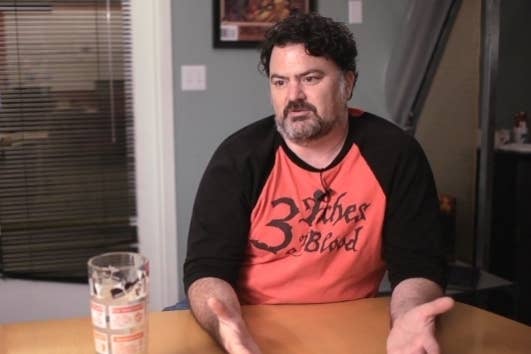The Year of Living Double Finely
From Kickstarter to The Cave, Tim Schafer reflects on 12 eventful months in the life of his indie studio
One year ago this month, Double Fine Productions launched its Kickstarter campaign, asking for $400,000 to make an old-school adventure game with a documentary crew filming the process, warts and all. The campaign raised $3.4 million and touched off a crowdfunding revolution that has financed new games from famous developers, and even a couple new developer-friendly consoles. Double Fine followed that up by accidentally launching its first free-to-play title on iOS, holding its studio-wide Amnesia Fortnight prototyping event in full view of the public (and offering a Humble Bundle where backers could not only choose which pitches were protoyped, but also download the "finished" efforts after the fact), and most recently, launching Ron Gilbert's adventure game The Cave.
GamesIndustry International recently talked with Tim Schafer to assess the events of the past year, starting with the Kickstarter project, currently codenamed REDS and deep in development. Schafer said the project has been a big turnaround for the company, specifically in the way its relationship with fans has evolved. It's "just as big a change" as the company underwent after Brutal Legend, when it stopped being a single team producing retail games and split into a handful of teams working on downloadable titles with smaller budgets.
"It was always scary to be open," Schafer said of his past attitude toward transparency. "We went from a company that never even showed concept art until a game was announced to showing unfinished concept art that we don't even know if we're going to use or not, just laying all the cards out on the table. Your worst fear is that people are not going to like it and there's going to be a revolt. Maybe it's just our backers are especially smart and attractive, but they've responded with a feeling of just being brought in to the whole process. They get behind you more instead of getting behind you less, which is what you're afraid of when you reveal all your secrets."
Schafer said the community has even been accepting of bad news, like when it became clear that REDS was going to miss the October 2012 release date specified in the original Kickstarter pitch. While there have been complaints, he said the more common sentiment he hears from backers of the project is that they want Double Fine to take whatever time they need to get it right.
"I think a lot of the anger from delays comes from that unexplained, closed door PR routine you do with a typical game."
Tim Schafer
"I think the overwhelming opinion of our backers is they want the game when it's done and when it's good," Schafer said. "I think a lot of the anger from delays comes from that unexplained, closed door PR routine you do with a typical game. But in this case, they're going to see what we're working on, and I think that takes away some of that frustration."
That approach may have cut down on frustration, but it's also made public a number of discussions that are typically kept private in game development. The most recent episode of the REDS documentary detailed a game going over time and over budget, with Schafer and his colleagues discussing a financing crunch and alternative ways of funding beyond the Kickstarter haul. Despite that, Schafer balked when asked if he'd had any second thoughts about letting the documentary film crew in to cover the game's creation.
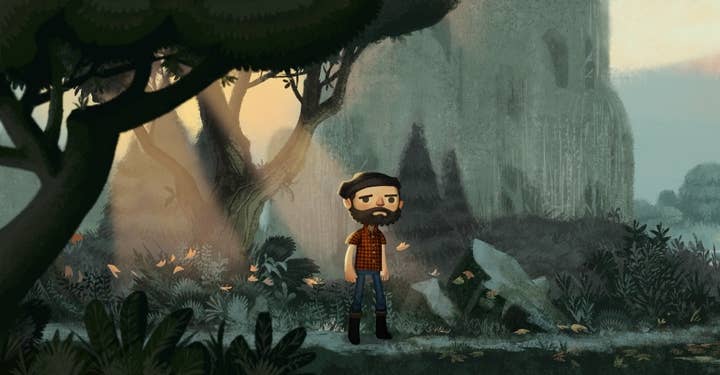
"None at all," Schafer said. "That's part of what we wanted to show. One of the reasons I wanted to do a documentary was that I really thought it was time for people to come behind the curtain and see how the sausage gets made. Most people don't even know all the trade-offs you have to do, the tough decisions and the problems you have to face. I was worried that we weren't going to have a publisher this time around, so at least 50 percent of our grief was going to be gone. But the interesting thing is that means you just have different obstacles, and sometimes those obstacles are yourself. So the documentary is going to be us wrestling with our own design to keep it under scope, me wrestling with my discipline to get my writing done on time."
While Double Fine does maintain some control over the documentary installments as they're released, Schafer said it's only used to avoid leaking game spoilers or letting anything out that could get the company sued. That amount of control was necessary to ensure they could get full access into every aspect of development, he added.
"I was worried that we weren't going to have a publisher this time around, so at least 50 percent of our grief was going to be gone."
Tim Schafer
"I'm glad that's being shown. I really don't feel like we have anything to hide," Schafer said. "Our company doesn't have a lot of unique problems. Every game that goes into production has a period where the design's too big and they have to cut scope. Every project has to fight for resources, fight to keep their resources, and has to make tough creative decisions. And that's really what I wanted people to see, so they know that human beings make these things."
Transparency was a theme Double Fine embraced again later in 2012 with its first publicly announced Amnesia Fortnight. Dozens of Double Fine developers prepared pitch videos, and backers who chipped in on a Double Fine-themed Humble Bundle were given the chance to choose which projects would be prototyped over a two-week period.
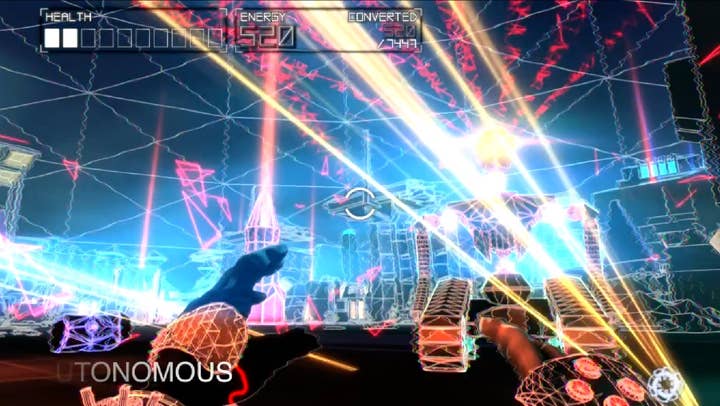
"Some of the attention it brought was good, and some was bad," Schafer said. "Being in front of the camera all the time for REDS, I was pretty used to it. But a lot of the team who is not on REDS is not used to being on camera all the time and found it kinda unnerving, especially the livestreaming, which is really nerve-racking because it's live. But I think it made everyone step up their game a bit, not just that it was being documented, but because people were actually going to be able to download and play the prototypes afterward. So there was a lot more polish I think that went into this round."
Schafer was also pleased with the projects Double Fine fans picked for prototyping. They weren't exactly the ones he would have picked, but he acknowledged that the wisdom of the crowds might be better at picking out the best pitches than any individual. The studio is now pursuing all five of the Amnesia Fortnight projects, looking to turn them into full games. The studio is looking to make those games with the same level of transparency in development that it is exercising on REDS, but not necessarily with the same crowdfunding process. In previous years, Schafer would have brought the prototypes on a pitching tour of major publishers, but this time around, he's visting "more creative funding sources" (publishers and angel investors among them).
"Kickstarter projects have to be special, not just somebody's next game, but a project that should not be made another way."
Tim Schafer
Regardless of how creative Double Fine gets with its funding sources, Schafer said he'd be more than happy to go back to Kickstarter. However, he added developers can't be "reckless" about their crowdfunding.
"People don't like just any Kickstarter anymore. For a while, Kickstarter was so new and exciting they were just backing everything," Schafer said. "Kickstarter projects have to be special, not just somebody's next game, but a project that should not be made another way. Like, the fans would not want you taking money from a publisher for this game because they want you to make it for them, with their concerns in mind."
For Double Fine, that means timing the next project right, preferably after REDS has launched and the studio has shown it can pull off a Kickstarted game in the first place. Schafer said there are four teams at Double Fine, but only one of them has been funded by Kickstarter. While the other three would love to be similarly supported, Schafer said they need to first figure out the proper way to launch those additional projects. He noted that there's already a "huge backlash" going on against Kickstarter projects from known developers.
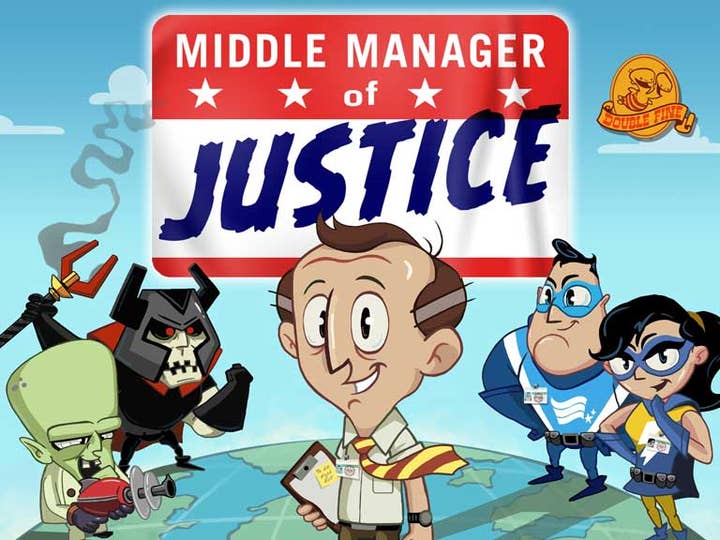
"One article described me as reaching out of my mansion with my golden cup, asking for handouts," Schafer said. "Obviously [the writer] has not been to my house. There's been so much, 'Oh, I'm getting sick of all these Kickstarters. Everyone's Kickstarting everything. Why is it always old people who want to revive a dead genre?' I think that backlash has happened, but I'm hoping for that to be over soon, so we can get back to talking about what an amazing, door-opening, positive thing Kickstarter is."
Still another major step for Double Fine last year was the release of Middle Manager of Justice, its free-to-play iOS game. Schafer said that title has been an ongoing learning process as the company has come to grips with having a live team to continually support a game after launch, constantly making changes, fixing bugs, and adding features. Going beyond that, Double Fine has also had to deal with a wholly unfamiliar business model.
"Finding a way to get money spent on the game and still being the company we want to be is part of the interesting tension of free-to-play."
Tim Schafer
"There's this tension when you're doing free-to-play," Schafer acknowledged. No one wants to be that exploitive free-to-play game that makes you feel like you're being pinched for money all the time and shaken down for cash. But the game was free and you don't make any money off it unless people do buy some of those in-app purchases. Finding a way to get money spent on the game and still being the company we want to be is part of the interesting tension of free-to-play."
That tension is something Double Fine will have to get used to, as Schafer said the company will explore games-as-a-service more in the future, whether it's in mobile titles or the PC space.
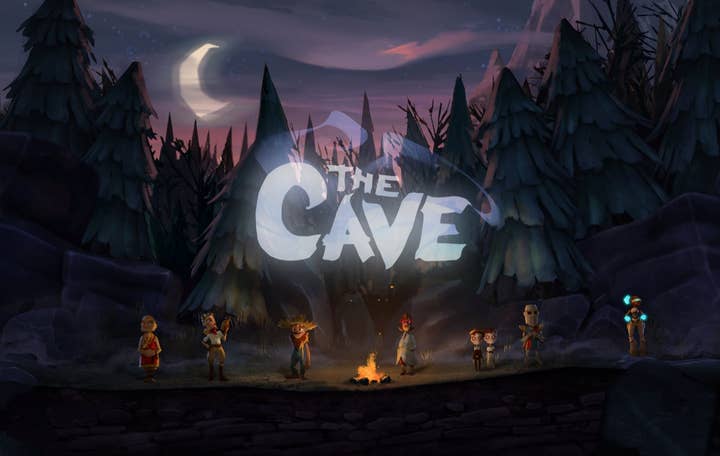
Double Fine wrapped up its eventful year with the release of The Cave, a downloadable game that seems like a bit of a throwback, not just because it's an adventure game directed by Schafer's fellow LucasArts alum Ron Gilbert, but because it's a downloadable Double Fine game developed without transparency, and for a major entrenched published in Sega. Double Fine has publicly floated a move away from such console work-for-hire projects, but Schafer expects them to be a part of the company's mix in the near-term.
"It's interesting because it's a changing time and there are all these potential new players with different boxes coming out that are more open," Schafer said. "I think we've found PC is the way to self-publish. And Sony's been pretty good about self-publishing too. So I think if consoles become more open like that, and allow independent developers to publish their own games, control their own prices and bundles and sales, allow them to patch their games without severe penalties, I think the whole indie community will be more interested. But right now there's so much freedom on the PC to have a direct relationship with your customer that it's hard for consoles to compete with that."
That said, Schafer acknowledged there is a new generation of consoles on the way, and the jump between systems could provide hardware makers a chance to change their ways.
"I can only say that I have heard promises, vague promises, that are encouraging," Schafer said.
